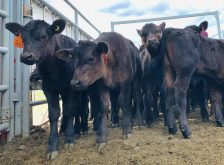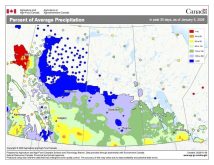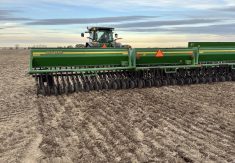Chuck MacLean was elected chairman of the Alberta Beef Producers in late 2009. He and his family operate a 7,000-head feedlot, farm about 4,000 acres, and own an order-buying and cattle-marketing business near Bow Island. In this interview he reflects on the past year as ABP chairman and some of the issues facing the cattle industry.
AF:You have been chairman of ABP now for over a year. What were your expectations of the job and how do you see it now?
Read Also

Taking the farmers’ market online
Two Albertans, who have a cow-calf operation near McRae, had the idea to create Arvo, an online farmers’ market, after being unable to find beef from within their own community.
CM:I didn’t have expectations as such. I had already been on the board for six years so I had some idea what the job was about. What has surprised me is the amount of time this job takes, at times it’s about three days a week. We started doing town hall-type meetings last year in some areas, we didn’t do that before, so that has taken more time. What also takes a lot of time are the behind-the-scenes meetings with government and other associations, along with the travel. But I believe it’s all worth the effort and it’s needed.
AF:The big issue in 2010 was getting the national checkoff reinstated as non-refundable. Could you give us some idea as to how that effort evolved?
CM:We first brought the issue up with the minister at the Beef Industry Conference and it developed slowly from there. We finally got an agreement by September. But it was all for the national checkoff, not the ABP itself. What helped a lot was getting flowchart information to show where the checkoff money went. This helped the other organizations better understand what was at stake and that it was for promotion and research and not the CCA or ABP.
AF:It seemed that once you got a tentative agreement in place, the process slowed considerably. Was there something else in the background causing that?
CM:I don’t know that, it did look like some glitches developed with Alberta Justice with the legalities and wording. I would have liked to have it in place sooner but stuff happens. The delay did cost the industry some money, but I look at the positive side. We now have at least two years of stable funding for the national organizations. I believe that was a huge move for the Alberta Cattle Feeders to agree to.
AF:Some have said, including the minister, that this whole process has helped unify the industry. Do you feel that has happened?
CM:I don’t know if the industry has ever been unified, quite frankly. We have found other ways of working together. From my own background I like making deals, so we try to accommodate people so we can all stay in business.
AF:Alberta Cattle Feeders has been soliciting producers to donate any of their checkoff refunds to their organization. Do you see the ACFA competing more with the ABP?
CM:I was a past chairman of ACFA so I understand them. Its about funding and if they can convince people to contribute their refunds to them I suppose that is their right. My job is to convince producers to leave their checkoffs with the ABP, which I believe is a more encompassing organization. We are inclusive; we have a cattle feeder council. I’m a cattle feeder, although nowadays I am not that big.
AF:It’s anticipated that ABP will be seeing a loss of revenue. Do you see making any cutbacks or layoffs in any specific areas?
CM:We decided two years ago when the refundable checkoff issue started that we were going to live off whatever we received. We put $5 million into the transition process to a lower income. We are now seeing a 38 per cent refund request and we don’t know where it is going to level off. Cattle numbers are also going down so that will affect income, but a lot depends on how many times we collect the checkoff on that animal. I see fewer numbers being exported so we will be able to collect more from those animals staying in Alberta.
AF:The LUF issue continues to grow. ABP has a committee looking into it. Is there anything coming out of that?
CM:We are awaiting more of the regional reports to review. That committee will be making recommendations to address producer concerns. We work closely with Alberta Agriculture to make sure we are on the right track. We are not taking sides on the issue we just want to make sure the right thing is done for the producers. It’s really up to producers how they want to drive this issue, the ABP isn’t going to be leading it. Our committee will be looking at the whole issue. We want to be sure that we can live with what is being planned.
AF:ALMA has now been around for over a year. ABP had a rocky start with it, has anything changed with the relationship?
CM:I think we have moved a long ways. We talk and meet with ALMA quite often. They have supported different projects that ABP has been working on. We have a good line of communication with them and met them at the executive level. We are all trying to work together.
———
“Idon’tknowifthe industryhaseverbeen unified,quitefrankly. Wehavefoundother waysofworking together.”
CHUCK MACLEAN














